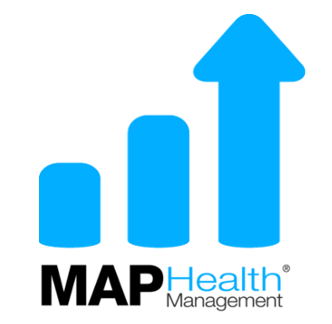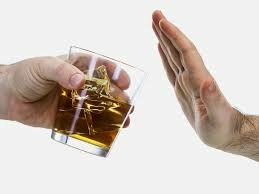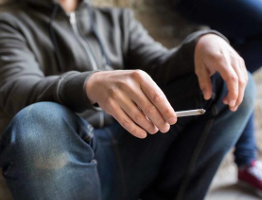Addiction and Relapse: Can There Be One Without the Other?
November 25, 2016 Thomas G. Kimball, PhD
Published in The Doctor Weighs In, November 25th, 2016. View the Article Here
 Addiction is a chronic disease of the brain. There is no known cure for addiction, however, individuals who suffer from the disease can manage their illness and learn to live and be successful without using alcohol or other drugs—this is known as recovery.
Addiction is a chronic disease of the brain. There is no known cure for addiction, however, individuals who suffer from the disease can manage their illness and learn to live and be successful without using alcohol or other drugs—this is known as recovery.
When someone finds recovery, it takes both effort and time for the brain to heal. The first 12-18 months of recovery can be particularly vulnerable for those who suffer from this disease. Some professionals in the recovery field have asserted that during the first five years, recovering persons remain vulnerable to relapse. Because there is no known cure for addiction, other addiction treatment professionals believe those who suffer remain vulnerable for the rest of their lives.
The National Institute on Drug Abuse discusses relapse in this way:
The chronic nature of the disease means that relapsing to drug abuse at some point is not only possible, but likely. Relapse rates (i.e., how often symptoms recur) for people with addiction and other substance use disorders are similar to relapse rates for other well-understood chronic medical illnesses such as diabetes, hypertension, and asthma, which also have both physiological and behavioral components. Treatment of chronic diseases involves changing deeply embedded behaviors, and relapse does not mean treatment has failed. For a person recovering from addiction, lapsing back to drug use indicates that treatment needs to be reinstated or adjusted or that another treatment should be tried.
There are many people who maintain recovery and never experience a relapse. However, we must understand that relapse does happen and how we view and handle relapse as a society, as communities, and within families can make a huge difference to recovery and wellness in the long-term.
Lapse, relapse, and collapse
It is important to note that not all relapses are created equal. Some experience a one-time use event while others have a full-blown deterioration and return to an addiction lifestyle. When trying to understand relapse, and explaining relapse to individuals in recovery and their families, the following outline is helpful.
- Lapse: a one-time use event and then a quick return to recovery. Many people experience lapses where, in a vulnerable moment, they use alcohol/drugs or engage in addictive behavior. These moments are usually during times of heightened pain/stress or times of celebration. Anyone in recovery can experience these vulnerable moments and become susceptible to a lapse.
- Relapse: a short period of deterioration followed by a return to recovery. Relapses are more than just a one-time event and may include weeks of using or engaging in addictive behaviors. Often, those in recovery experience relapse because they have stopped engaging in activities or doing things to maintain balance and wellness.
- Collapse: a total return to an addiction lifestyle. Obviously, a collapse or totally embracing an addiction lifestyle is the most dangerous and painful. During a collapse, those who suffer may disappear altogether from family and friends. Although death can happen with lapses and relapses, succumbing to the disease of addiction often happens during this type of collapse.
Relapse is somewhat common for people who are trying to maintain recovery. Why do people relapse? As stated above, it takes time for the brain to heal and time to change. People in recovery should garner our greatest respect for what they do every day to stay in recovery and pursue a recovery lifestyle.
If you are having trouble understanding why people relapse or how hard recovery is to maintain, try this experiment. Choose something to give up for the next 30 days. Some examples may include coffee, soda, caffeine, biting your nails, watching television, or Facebook. Make a commitment today and each day to avoid the activity and replace it with other healthy things.
Typically, when people attempt this experiment, they realize that giving up anything that is part of their everyday routine is difficult. If you take this challenge, how many lapses, relapses, and collapses will you experience in the next 30 days? For those who suffer from addiction, the stakes of not staying in recovery are extremely high—sadly, many people who die from overdoses do so after being in recovery and relapsing.
Relapse is not a character flaw
Science has confirmed that addiction is indeed a chronic brain disease and relapse can and does happen. It goes without saying that lapses, relapses, and collapses can be dangerous, scary, and hurtful—even deadly. But a return to use or a period of deterioration of the disease of addiction does not necessarily mean the end of recovery nor the destruction of all that has been gained by the efforts and work put into recovery. Too often, those who relapse are full of shame and despair, and it creates the context by which the probability of continued use is elevated. In these moments, we must think of how we would handle a relapse of diabetes or asthma—relapsing from chronic diseases is based on a complicated set of bio-psychosocial factors and is not a character flaw.
Let’s start fresh today, find the right kind of help, and accept that the brain needs time to heal. Addiction cannot be cured but it can be managed, and we can move forward smarter and motivated to live fuller, healthier lives.








